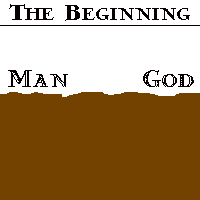Excerpts from Soul Survivor to whet your appetites.
G. K. Chesterton
The Christian ideal has not been tried and found wanting. It has been found difficult; and left untried.
The worst moment for the atheist is when he is really thankful and has no one to thank.
The real question is no "Why is Christianity so bad when it claims to be so good?" but "Why are all things so bad when they claim to be so good?"
When London Times asked a number of writers for essays on the topic: "What's Wrong with the World?" Chesterton sent in the reply shortest and most to the point:
Dear Sirs,
I am.
Sincerely yours,
G. K. Chesterton
We always ponder the problem of pain, but have you ever pondered on the problem of pleasure? Why is sex fun? Reproduction surely does not require pleasure - some animals simply split in half to reproduce and even humans use methods of aritifical insemination that involve no pleasure. Why is eating enjoyable? Plants and the lower animals manage to obtain their quota of nutrients without the luxury of tastebuds. Why are there colours? Some people get along fine without the ability to detect colour. Why complicate vision for all the rest of us?
Dr Paul Brand
- Reflecting on the Gift of Pain, one of the excellent books he co-authored with Yancey.
He (Brand) insisted on pain's great value, holding up as proof the terrible results of leprosy - damaged faces, blindness, and loss of fingers, toes, and limbs - all of which occurs as side-effects of painlessness. Brand had made the groundbreaking medical discovery that leprosy does its damage merely by destroying nerve endings. People who lose pain sensation then damage themselves by such simple actions as gripping a splintered rake or wearing tight shoes. Pressure sores form, infections set in, and no pain signals alert them to tend to the wounded area.
I thank God for pain. I cannot think of a greater gift I could give to my leprosy patients.
He went on to describe the intricacies of the pain system that protects the human body. It takes firm pressure of a very sharp needle for the sole of the foot to feel pain, whereas the cornea of the eye senses one-thousandth as much pressure, calling for a blink reflex when a thin eyelash or speck of dust brushes the surface. Intestines do not sense pain from being cut or burned - dangers these internal organs do not normally confront - yet they send out the urgent pain signal of colic when distended.
When he first start working as a doctor in a hospital:
I noticed that the symptoms of illness my patients complained about were actually a display of bodily healing at work. Virtually every response of our bodies that we view with irritation or disgust - blister, callus, swelling, fever, sneeze, cough, vomiting and especially pain - demonstrates a reflex toward health. In all these things normally considered enemies, we can find a reason to be grateful.
Brand responded to the dilemma of the marvel of the natural world and its apparent flaws with a twin spirit of gratitude and trust - gratitude for those things he could see and appreciate, and trust regarding those things he could not. To Brand's surprise, faith in God's trustworthiness deepened even as he worked among people least likely to feel gratitude, leprosy victims in India, because he saw transformation in the lowest of the low resulting from simple compassion and a healing touch.
What about birth defects? He launched into a description of the complex biochemistry involved in producing one healthy child. The great wonder is not that birth defects occur but that millions more do not. Could a mistake-proof world have been created so that the human genome with its billions of variables would never err in transmission? No scientist could envision such an error-free system in our world of fixed physical laws.
(In today's world where people spend a lot of money to eliminate and seek to avoid pain at all cost, this is a counter-culture message.)
Robert Coles
- Trained medically, Coles was a psychiatrist, Harvard lecturer, wrote voluminous works from his study of the poor and even championed against racism, for civil rights. Finally he taught spiritual literature in Harvard, challenging the brightest minds in business, medicine, law and etc to think about the more important questions of life.
The poor had no answers for the unfairness of life. Had a mere accident of birth condemned them to a cycle of suffering and poverty? They had little time or leisure to contemplate such questions. But when asked about the source of strength in their lives, they often pointed to Jesus. Religion for them was no crutch but rather a source of inspiration. They found in Jesus, and in the image of the cross, a ray of hope that convinced them God knew their sufferings.
Coles reflected on the peculiar circumstances of life that God had chose in coming to earth, as a carpenter who associated with peasants and fishermen, his mother used to remind him, not as a doctor or lawyer or college professor.
Among the poor he had expected defeat and despair; he found some, yes, but he also found strength and hope and courage. Among the rich, he expected satisfaction and instead found boredom, alienation and decadence.
God has made everything beautiful for its own time. He has planted eternity in the human heart, but even so, people cannot see the whole scope of God's work from beginning to end.
Life is about changes and learning to enjoy the adventure of journeying in life with Him. I can't see what's ahead and have no way of controlling how things will go. I can only trust Him, that He makes all things beautiful in its time.
Sunday, March 12, 2006
Subscribe to:
Post Comments (Atom)



No comments:
Post a Comment